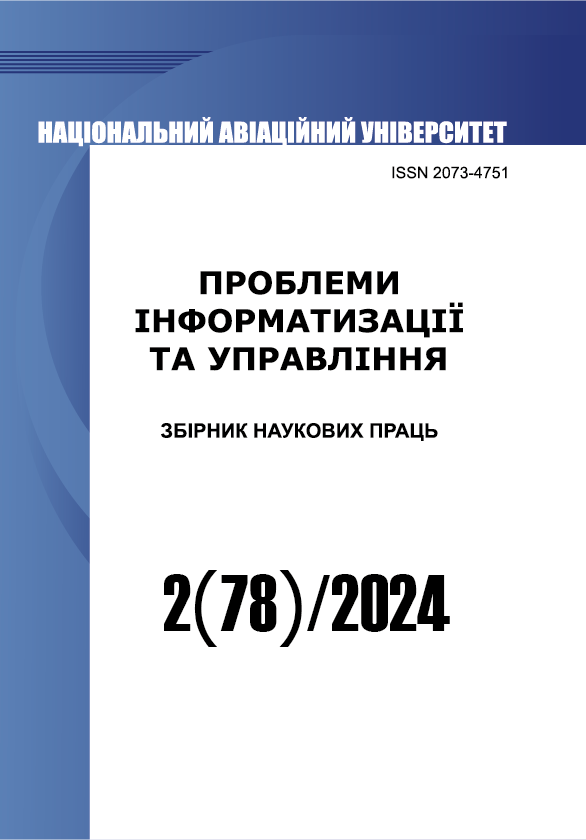Soft-adaptation of reference algorithm for discrete control
DOI:
https://doi.org/10.18372/2073-4751.78.18961Keywords:
discrete control systems, relay control systems, on-off Controller for Systems, Control Process of an On-off Controller, adaptation methodAbstract
An applied technique for quickly transitioning from a pre-optimized reference control algorithm to its discretized (software) alternative for the needs of discrete control of objects operating on the “on-off” principle is proposed. This technique can effectively facilitate the design and implementation of low-cost automatic control systems, in particular, based on a unified information and control network organized by the client-server principle. The method application involves some stages, namely: basic formalization of the control circuits and obtaining of optimal transient processes through modeling (implemented using the MatLab Simulink environment in the current article), identifying the optimal reference control algorithm and its parameters, an adaptation characteristic constructing, software implementation of the adaptation characteristic on controller level.
References
Urica T. et al. The Control Process of an On-off Controller. 2019 20th International Scientific Conference on Electric Power Engineering (EPE) : proceedings, Kouty nad Desnou, Czech Republic, 15–17 May 2019 / IEEE. Ostrava, 2019. P. 1–6. DOI: 10.1109/EPE.2019.8778003.
Faizollahzadeh S. et al. Modeling and comparison of fuzzy and on/off controller in a mushroom growing hall. Measurement. 2016. Vol. 90. P. 127–134.
Khera N., Kohli S. Comparison of Fuzzy and On/Off Controller for Winter Season Egg Hatching Incubator System. 2018 International Conference on Sustainable Energy, Electronics, and Computing Systems (SEEMS) : proceedings, Greater Noida, India, 26–27 October 2018 / IEEE, 2018. P. 1–4. DOI: 10.1109/SEEMS.2018.8687365.
Nejati A., Soudjani S., Zamani M. Compositional abstraction-based synthesis for continuous-time stochastic hybrid systems. European Journal of Control. 2021. Vol. 57. P. 82–94. DOI: 10.1016/j.ejcon.2020.04.001.
Kučera E. et al. New Software Tool for Modeling and Control of Discrete-Event and Hybrid Systems Using Timed Interpreted Petri Nets. Applied Sciences. 2020. Vol. 10, iss. 15. 5027.
Sheremet O. et al. Relay Control Systems with Discrete Time Equalizer. 2020 IEEE Problems of Automated Electrodrive. Theory and Practice (PAEP) : proceedings, Kremenchuk, Ukraine, 21–25 September 2020 / IEEE, 2020. P. 1–4. DOI: 10.1109/PAEP49887.2020.9240809.
Deatcu C., Freymann B., Pawletta T. PDEVS-based hybrid system simulation toolbox for MATLAB. SpringSim '17: Spring Simulation Multi-Conference : proceedings, Virginia Beach, VA, USA, 23–26 April 2017 / San Diego, 2017. P. 2:1-2:12.
Bähner F. D., Prado-Rubio O. A., Huusom J. K. Discrete-continuous dynamic simulation of plantwide batch process systems in MATLAB. Chemical Engineering Research and Design. 2020. Vol. 159. P. 66–77. DOI:10.1016/j.cherd.2020.03.030.
Uriča T., Simonová A. Simulation of an on-off Controller for Systems of Second Order with the Use of LabVIEW. Procedia Engineering. 2017. Vol. 192. P. 905–910.
Wang D., Ha M., Qiao J. Self-learning optimal regulation for discrete-time nonlinear systems under event-driven formulation. IEEE Transactions on Automatic Control. 2019. Vol. 65, no. 3. P. 1272–1279.
Kersting S., Buss M. Direct and indirect model reference adaptive control for multivariable piecewise affine systems. IEEE Transactions on Automatic Control. 2017. Vol. 62, no. 11. P. 5634–5649. DOI: 10.1109/TAC.2017.2690060.
Guidotti R. et al. Local rule-based explanations of black box decision systems. arXiv:1805.10820. 2018. 10 p.
Perera D. W. U., Winkler D., Skeie N. O. Multi-floor building heating models in MATLAB and Modelica environments. Applied Energy. 2016. Vol. 171. P. 46–57.
Utama Y. A. K., Hari Y. Design of PID disturbance observer for temperature control on room heating system. 2017 4th International Conference on Electrical Engineering, Computer Science and Informatics (EECSI) : proceedings, Yogyakarta, Indonesia, 19–21 September 2017 / IEEE. Piscataway, 2017. P. 1–6.
Downloads
Published
How to Cite
Issue
Section
License
Автори, які публікуються у цьому журналі, погоджуються з наступними умовами:- Автори залишають за собою право на авторство своєї роботи та передають журналу право першої публікації цієї роботи на умовах ліцензії Creative Commons Attribution License, котра дозволяє іншим особам вільно розповсюджувати опубліковану роботу з обов'язковим посиланням на авторів оригінальної роботи та першу публікацію роботи у цьому журналі.
- Автори мають право укладати самостійні додаткові угоди щодо неексклюзивного розповсюдження роботи у тому вигляді, в якому вона була опублікована цим журналом (наприклад, розміщувати роботу в електронному сховищі установи або публікувати у складі монографії), за умови збереження посилання на першу публікацію роботи у цьому журналі.
- Політика журналу дозволяє і заохочує розміщення авторами в мережі Інтернет (наприклад, у сховищах установ або на особистих веб-сайтах) рукопису роботи, як до подання цього рукопису до редакції, так і під час його редакційного опрацювання, оскільки це сприяє виникненню продуктивної наукової дискусії та позитивно позначається на оперативності та динаміці цитування опублікованої роботи (див. The Effect of Open Access).

